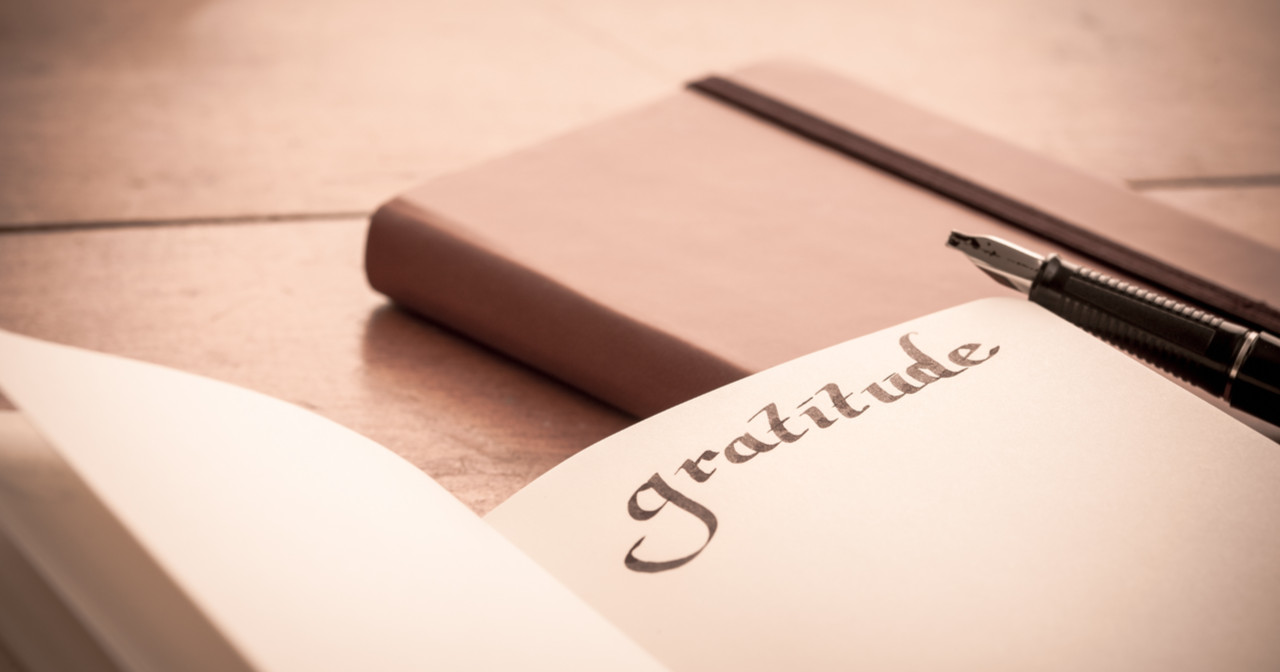The last and greatest nights of Ramadan are upon us. The Muslims all over the world will be inspired to stand in salāh in these nights, to raise their hands and lower their heads in asking and pleading to Allāh in their du’ās. The Qur’ān will be read for long periods of time and there will be consistent acts of charity that they will be involved in. May Allāh accept it from us all and multiply our rewards.
But amongst these deeds will be one that will be forgotten amongst many, one that does not take much time. It is called gratitude, or being thankful.
Gratitude has many benefits for a Muslim both from a scientific and an Islamic perspective.
It has been proven that for those individuals who are consistent in remembering the good things they have been blessed with, the action of being thankful alone trains the brain to become more positive. That individual will be a happier person in general, and less likely to fall into depression, as depression is the plague of the mind on consistent negativity. With the help of Allāh, gratitude itself can help fight depression, subhānAllāh.
From an Islamic perspective the Qur’ān has made it clear that Allāh loves those who are grateful; but they are, in fact, a minority of people. There is also an increase given to the individual in relation to the things he or she is grateful for.
وَقَلِيلٌ مِّنْ عِبَادِيَ الشَّكُورُ
“And few of My servants are grateful.”[1]
وَإِذْ تَأَذَّنَ رَبُّكُمْ لَئِن شَكَرْتُمْ لَأَزِيدَنَّكُمْ ۖ وَلَئِن كَفَرْتُمْ إِنَّ عَذَابِي لَشَدِيدٌ
And [remember] when your Lord proclaimed, ‘If you are grateful, I will surely increase you [in favour]; but if you deny, indeed, My punishment is severe.’[2]
But the Islamic perspective of gratitude does not stop at verbal proclamation. The heart is grateful, indeed. And then the tongue can follow suit by adhkār, giving thanks to others, and istigfār.
But the limbs also show gratitude in our very behaviour. For example, one can be grateful verbally for the food Allāh has provided, but then throw away some in waste at the end of the meal. One can be grateful for time and energy but then use them in a way that Allāh dislikes.
True gratitude is when the heart, the tongue and the limbs work in unison; essentially to use your very being in a way that Allāh will be pleased with.
This should not be exclusive for Ramadan, but rather the beginning of you building your identity as a grateful slave of Allāh.
Also Read: Build Your New Identity This Ramadan
What is there not to be grateful about?
Did He not allow you to stand the nights in prayer to Him?
Did He not inspire you to make du’ās to Him?
Did He not give you eyes and a voice that you may recite the words from His Book?
And every action that you have been inspired to do in these nights is but what He chose you to do.
Should you not then be grateful? Maybe you could have been misguided and another could have been chosen for those actions.
Furthermore, there is no guarantee that over the next year you will continue to be inspired, right? But actually there is.
If you are grateful to Allāh for allowing you to worship Him then He has promised that He will increase those who give thanks.
If you wish to have an increase inshā’Allāh in all the good that you are striving for right now, then don’t forget to include gratitude to Allāh into your life from right now, and make it from the things that you include in your checklist to cover for the last ten nights.
May Allāh accept them, and increase you in them Āmīn.
This Ramadan choose to be from the few—the few that are grateful. And truly comprehend that your many acts of ibādah in these nights do not come from your own power and might, for truly there is no power and might except with Allāh.
Also Read: How an Attitude of Gratitude Will Change Your Life
Source: www.islam21c.com
Notes:
[1] Al-Qur’ān 34:13
[2] Al-Qur’ān 14:7









